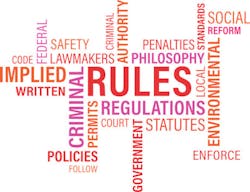Wise-up Wednesday from Zane Benefits: Department of Labor issues Final Rule regarding overtime pay under Fair Labor Standards Act
It's important for employers to stay abreast of the latest developments involving overtime pay. The recently-passed FLSA Final Rule is one new rule that needs to be enforced now, including in dental practices.
On May 18, 2016, the U.S. Department of Labor (DOL) announced its Final Rule to increase overtime eligibility for millions of U.S. citizens under the Fair Labor Standards Act (FLSA). This new rule will go into effect on December 1, 2016. While the Final Rule translates into greater costs for employers, it might save money in the long term by increasing retention of employees who are covered by the FLSA rules.
Who is covered by the FLSA rules?
The FLSA provides Americans with the right to time-and-a-half compensation for time worked over 40 hours per week. The FLSA rules, including the Final Rule, cover employees of private enterprises or non-profit organizations with an annual gross volume of sales made or business done of $500,000 or more. The FLSA rules also apply to employees of federal, state, and local governments.
Overtime exemption
Three criteria must be met for an employer to claim that it is exempt from making overtime payments to a certain employee:
• The employee must be paid a fixed salary.
• The employee’s salary must meet a minimum salary level.
• The employee’s primary job duties must be the type of work associated with executive, administrative, professional, outside sales, or computers.
Increase in minimum salary threshold
The DOL’s Final Rule governs the minimum salary level necessary for an employer to claim exemption status for overtime pay. The salary threshold for the white collar exemption has changed only once since the 1970s. For standard salaries, the Final Rule increases the salary level from $23,660 ($455 per week) to $47,476 ($913 per week). For Highly Compensated Employees (HCE), the Final Rule also increases the annual compensation level to the 90th percentile of full-time salaried workers nationwide, i.e., from $100,000 to $134,000 per year. To prevent the salary threshold from becoming outdated in the future, the new FLSA rule mandates an automatic update every three years.
Incentive pay
While not permitted in the past, employers may now use commissions, nondiscretionary bonuses, and other incentive payments to meet the salary threshold for exemption. There are limitations to this change. For example, only 10% of the salary level of the employee may be paid in the form of incentive pay, and it must be paid quarterly.
Conclusion
Employers must reevaluate their employees to determine which workers qualify for overtime. That determination must be based on the three tests summarized above, including the updated minimum salary threshold. Employers must also plan for the automatic updates to the minimum salary threshold every three years, beginning January 1, 2020. The Final Rule becomes effective December 1, 2016. This gives employers approximately six months to implement the changes necessitated by the updated regulations.
RECENT WISE-UP WEDNESDAYS:
Top 10 job benefit trends for dental practices in 2016
Top 5 health insurance options for dental practices
Retirement savings for dentists
For the most current dental headlines, click here.
To learn more about implementing simple HR best practices, download Zane Benefits' whitepaper, “The Small Business Guide to Human Resources.” Wise-up Wednesday is presented bi-monthly from the experts at Zane Benefits. One Wednesday a month features Human Resource issues, and the other Wednesday discusses health benefits.

